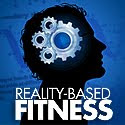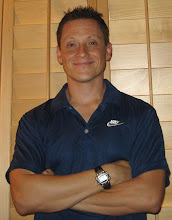" A PhD is knowing everything about nothing, coaching is knowing something about everything"
- Istvan Balyi (world-renowned athletic development coach)
I love that statement from Istvan Balyi. It really sums up to me the concept of being a great sporting or conditioning coach. To really be a good, if not great coach, one must have a broad understanding of the following disciplines of sports science:
1. Nutrition (hydration and fueling for optimum physical and mental performance)
2. The Training Process (including assessment, fitness programming, and periodization)
3. Biomechanics (physics applied to the human body and it's interaction with the environment)
4. Physiology (including energy systems, basic homeostasis, hormonal responses, etc.)
5. Psychology (including goal setting, mental skills training, overcoming mental barriers)
6. Motor Control/Motor Learning (including how we learn, retain, and accomplish skills)
7. Restoration/Recovery (including sleep, massage, stretching , joint mobility, etc..)
Of course there are many other facets involved in succesful coaching but these are a great start. This just shows how integrated all subjects really are when it comes to coaching. You don't have a PhD in any of these topics to be a great coach, but you really do have to study a lot of different disciplines to gain an awareness of the entire training process.
The problem with "specialist" knowledge if any one of the above mentioned subjects is that it tends to bias the coach towards seeing every problem as a problem of (enter one of the above here) and therefore limit the solution for such problems. For instance, if a client/athlete has run into a barrier with a particular lift (Squats for example), as a Sports Psychologist, I might focus on more goal setting or mental priming techniques to solve the issue. On the other hand, if I'm an expert on Nutrition, I might be more concerned with proper pre-worout fueling and hydration whereas a Biomechanist might be focused on altering squatting technique to help take advantage of key biomechanical qualities of the muscles, tendons, and ligaments in question. In the final analysis, ALL of the above ideas might be related to the limitation in performance on any given day.
The bottom line: You must keep a macro-view of the entire training process and then be able to focus in on specific scientific disciplines when needed. This is where communication with one of those PhD's (or their textbooks) might come in handy. Just remember though, just becasue someone has a PhD doesn't make them the best candidate for coaching!
Thursday, August 2, 2007
Subscribe to:
Post Comments (Atom)







4 comments:
Keats,
I couldn't agree more! A successful and effective strength coach actually has to be well versed in many disciplines, many which you mentioned. How true it is to see various health care specialists to take the microscopic view rather than the macro - view. As the old saying goes, "if all you have in your tool box is a hammer, everything looks like a nail."
On the flip side, I do the need to specialize in an area where you might have a natural strength or passionate about and really become an expert in that area. However, to really be an effective coach you must have a broad understanding of the other disciplines which obviously many coached do not have.
Great post!
Keats--good insights.
How's the new business going? I hear you're training out of Josh's place.
Drop me a line regarding your questions about Z at geoff.neupert@gmail.com.
Thanks man.
Thanks for the comments guys.
Geoff, I will drop you a line regarding Z because I've opened up a giant can of worms at another forum regarding Z. While I do find aspects of Z-health beneficial, I am not as firm a believer in it as you and some others.
Disagreement and doubt is healthy though; that's how any field grows. Boy it would sure be boring if we all agreed on everything!
updates????
Post a Comment